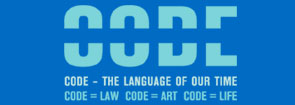| |
|
|
|
|
||
|
||||||||||||||||||||
| |
|
|
|
|
 |
|
 |
|||
| |
||||||||||
| |
||||||||||
 |
|
|||||||||
| |
||||||||||
| |
||||||||||
| |
||||||||||
| |
|
David Toop on the Digital Musics Jury
You are a musician, a writer, a curator and you are frequently collaborating with writers, musicians and sound artists. What is more important for you: making music or writing about music? David Toop: I couldn't say which is more important. There was a time during the 1980s when I only made private music with a computer but after some years I really began to miss making music in public, and with other musicians. At the same time, I always have ideas about music and if I don't have an outlet for those ideas then that becomes a source of frustration. The two activities are very closely linked for me and I have made a conscious effort in the past five years or so to strengthen those links. For a time it was problematic to work in both these areas: listening to so much music as a critic threatened to destroy my love of music. In some ways that is exactly what has happened, though it didn't destroy my love of sound. On the other hand, if you write, then making music is perceived as a kind of hobby, but for me, working with sound is one of the central aspects of my life. You have curated an acclaimed festival "sonic boom", a "sound art" festival. How do you define "sound art"? What do the musicians you have invited have in common? David Toop: I don't define sound art. I don't define anything in terms of a category like this. Really, what is the point? Perhaps catagories have to be used in the most general sense by an art gallery or a book publisher but beyond that, it's the least interesting approach to creative work that I can think of. The quality shared by all of the artists I invited as contributors to sonic Boom was their serious regard for sound. In digital musics, musicians are disseminating their music across multiple platforms - we see installation works, mixed media pieces, gallery presentations, video, sound art exhibitions or internet domains. These multiplying contexts allow musicians to constantly expand their work. How does this change the essence of digital music? David Toop: The relationship to an "audience" may change. The relationship of the work to the body may change. The relationship of the work to a location may change. Although digital sound work and platforms have a distinct character and unfamiliar properties, I don't believe this is anything special. Digital media register an adjustment of our image of the body, our location in time and space. A shift in perception may take place and the creation of music is influenced by this but that shift in perception has been present in non-digital work in the past. To expand work, as you say, can be a trap; a confusion about delivery systems and content that is marvellous for theorists but fails to hide mediocrity. In the end, digital music is as subject to banality as any other phase of sound work - perhaps more so, because it's no longer necessary to learn technique, engage with audiences or work with record companies that have no interest in art. What are your own music projects for the time to come? David Toop: I have a new CD - Black chamber - released on Sub Rosa this month. I have been invited to contribute a piece to the French Audiolab project. Currently I'm working hard to complete a new book, on the subject of sound, listening, space, memory, performance and the body in the digital era. In the near future I will be performing solo, and in duos with Max Eastley and Akio Suzuki. It is the first time that you are in the Jury of Prix Ars Electronica. What are your expectations? What criteria a piece of music must fulfil so that you would award it a Golden Nica? David Toop: I expect it to be very tough work for me. I listen to music less and less these days, so this period of concentrated listening will be difficult. I also agree less and less with other people about music so I imagine the discussions will be tough. To be totally honest, I don't really like the idea of competitions. I would only choose a piece of music if the choosing gave recognition to a person who is working with sound in surprising ways, a person who is struggling with sound and finding deep and compelling forms within this material. It won't make them better than the others but it will be the piece of music that I will want to take away with me and listen to repeatedly, perhaps for the next 30 years! |  |
|
||||||
| |
||||||||||
| |
||||||||||
| |
 |
|||||||||
| © Ars Electronica Linz GmbH, info@aec.at | ||||||||||